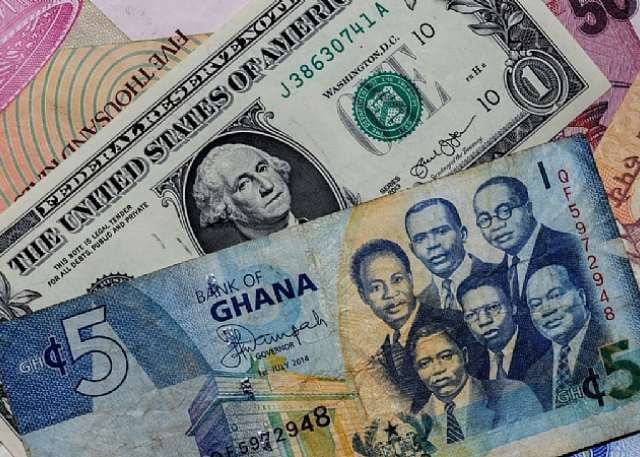The Ghanaian cedi experienced notable volatility against major international currencies, particularly the US dollar, on Wednesday, July 23, 2025, exhibiting variations across different exchange platforms. Cedirates.com, a trusted source for currency data in Ghana, reported an average buying rate of GHS10.47 and a selling rate of GHS11.01 for the US dollar. This indicates a noticeable spread between the buying and selling prices, suggesting a degree of market uncertainty and potentially reflecting the dynamics of supply and demand for the US dollar within the Ghanaian economy. Forex bureaus, which cater to individual transactions, quoted higher rates, with the dollar buying price at GHS11.75 and the selling price at GHS12.10. This disparity between the average rates and forex bureau rates reflects the additional costs and margins incorporated by these entities.
The Bank of Ghana’s interbank market, which facilitates larger transactions between financial institutions, presented a more controlled exchange rate environment. The interbank buying rate for the US dollar stood at GHS10.44, while the selling rate was marginally higher at GHS10.46. This narrower spread compared to the forex bureau rates underscores the stabilizing influence of the central bank’s intervention in the currency market. The interbank rates often serve as a benchmark for other segments of the foreign exchange market, although variations exist due to market segmentation and specific transaction costs.
The Ghanaian cedi also fluctuated against other major currencies, including the British pound and the euro. Forex bureaus offered an average buying rate of GHS13.96 and a selling rate of GHS14.77 for the British pound. This represents a significant premium compared to the Bank of Ghana’s interbank rate of GHS14.14 for the pound. This difference again highlights the distinct pricing mechanisms operating within the forex bureau segment compared to the interbank market. Similarly, the euro traded at an average buying rate of GHS12.15 and a selling rate of GHS12.81 at forex bureaus, while the Bank of Ghana’s interbank rate for the euro was GHS12.29.
Money transfer operators, specializing in remittances, offered competitive exchange rates for individuals sending money to Ghana. LemFi and Afriex, two prominent players in this space, provided attractive rates for US dollar, British pound, and euro transfers. For US dollar remittances from the US or UK, LemFi offered a rate of GHS10.40, while Afriex offered a slightly higher rate of GHS10.41. These rates are generally more favorable than those available at forex bureaus, reflecting the competitive landscape of the remittance market and the efficiencies achieved through specialized transfer mechanisms.
For British pound remittances, LemFi and Afriex quoted rates of GHS14.03 and GHS14.04, respectively. These rates are again competitive compared to the forex bureau rates, offering individuals a more cost-effective avenue for sending money to Ghana. For euro transfers, Afriex quoted a rate of GHS12.18, while LemFi offered a slightly lower rate of GHS12.16. The relatively small difference between these rates suggests a tight competition within the money transfer market for euro transactions.
Digital subscription services like Netflix, Spotify, and Apple Music, utilizing Visa and Mastercard payment platforms, applied a consistent exchange rate of GHS11.18 for both buying and selling. This unified rate simplifies transactions for users and provides clarity on the cost of these services in Ghanaian cedis. It is worth noting that this rate falls between the average rates reported by Cedirates.com and the rates offered by forex bureaus, reflecting the specific pricing models adopted by these international payment platforms.
In summary, the Ghanaian cedi demonstrated fluctuations against major currencies on July 23, 2025, with variations observed across different exchange platforms. Forex bureaus generally quoted higher rates compared to the Bank of Ghana’s interbank market, indicating the varying cost structures and market dynamics within these segments. Money transfer operators offered competitive rates for remittances, providing cost-effective solutions for individuals sending money to Ghana. Digital subscription services utilized a unified exchange rate, simplifying transactions for users. These diverse exchange rates underscore the complex interplay of factors influencing the Ghanaian foreign exchange market, including market segmentation, transaction costs, and the specific pricing strategies employed by different financial institutions and service providers.














